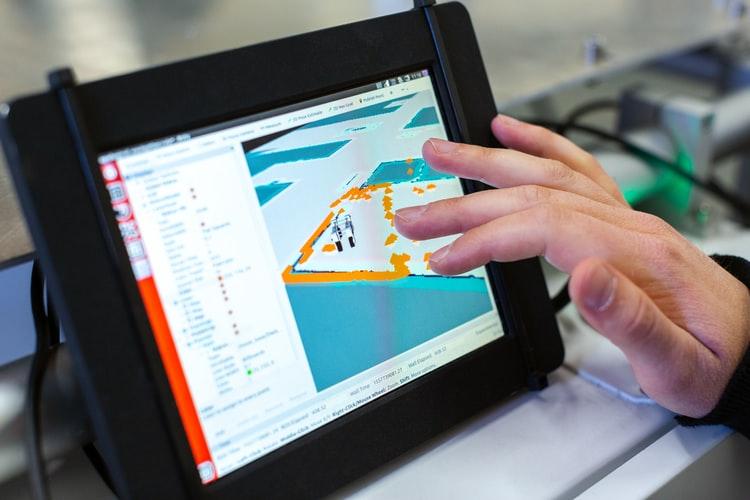
What is it that makes your business great?
Is it the employees whom you’ve worked so hard to train and develop?
Is it the policies and procedures that you’ve put in place to ensure that your enterprise consistently delivers the highest standard of product and service to your clientele?
Is it the equipment, technology, and infrastructure in which you’ve invested so much?
Is it your own strategic leadership that has seen your business go from strength to strength?
Let’s be honest, it’s likely a combination of all these interdependent factors. A business, any business is only ever as strong as the resources at its disposal.
Marshaling those resources and ensuring that each and every one of them is working as effectively and efficiently for you as possible is the key to success in business. But what if I told you that there was software that could take all the effort and time expenditure out of this for you? Enterprise Resource Planning (ERP) software is an extremely effective way to get the most out of the infrastructure you’ve built for your enterprise.
What is ERP Software?

ERP software Enterprise resource planning software (ERP) is a suite of customizable applications that allow businesses to integrate and manage their most important processes thereby boosting operational efficiency. While ERP pertains to all aspects of operations, it is also applied to human resources, finance, and all kinds of corporate services.
While integrating ERP solutions has its fair share of caveats (as detailed here), it also brings with it some very tangible benefits.
Let’s take a look at some of the benefits of Enterprise Resource Planning…
ERP makes your operations more efficient

No matter what the nature, size, or scope of your business, there’s a good chance that operational efficiency is a high priority for you. The good news is that ERP can improve efficiency in every aspect of your operations.
ERP eliminates the need for repetitive processes and greatly reduces the need to waste time and effort manually entering information into your systems. ERP systems also streamline your business processes and make it easier to collect the kind of key data that will drive performance.
ERP allows for streamlining of processes

If your business has growth in mind, you know that streamlining your processes can help you to expand your operations without the encumbrance that comes from flabby and inefficient processes. These can cause our burgeoning organization to trip up over its own feet.
That said, as operations grow, their operations usually become more complex. ERP increases efficiency and productivity by helping users navigate formerly complex processes, preventing tedious and repetitive tasks like data re-entry, and streamlining functions like production, order completion, and delivery.
ERP Improves the accuracy of your forecasting

Businesses of all shapes and sizes benefit when they look to the future. Managers that use ERP benefit from a suite of tools that allow them to create more accurate forecasts. Since the information within ERP systems is designed to offer the greatest accuracy possible, businesses can make better-informed estimates to facilitate effective forecasting.
ERP can help you to save money

When it comes to overhead expenditure, all businesses walk a fine line. They know that they need to invest in the infrastructure that will ensure success, but they also know that wasteful spending must be eliminated wherever possible.
ERP can help you save money without the risk of under-investment in your enterprise. With access to accurate, real-time information, ERP software can reduce unnecessary operational and administrative costs. It helps businesses and their constituent departments manage operations more proactively. It prevents disruptions and delays and prevents potential log-jamming of information to allow key personnel to make fast and effective decisions.
The net result is less wasted operational costs and increased ROI.
Integration makes everything easier

Many managers roll their eyes whenever a new software platform is brought on board because it means inevitable teething problems when it comes to integrating new software with their existing processes and IT infrastructure.
Fortunately, ERP is designed to make integration easy and hassle-free. ERP planning means centralizing data so data is not spread across separate databases. This makes integrating, for instance, your CRM platform is much easier software with the ERP system, keeping data consistent and accurate.
ERP can give your productivity a boost

All businesses know that getting optimal productivity out of their employees and processes can feel like an uphill struggle. But what if I told you that ERP can also boost your productivity? ERP systems are designed for ease of use, so employees aren’t bogged down by tedious and inefficient processes. Redundant processes are automated, leaving your employees with more time to work on more pressing and important tasks and projects. This makes for more stimulated and satisfied employees. And satisfied employees invariably tend to be productive employees.
ERP improves your customer service

You pride yourself on your ability to go the extra mile for your clientele and offer them a standard of customer service that your competitors simply can’t match. Nonetheless, as outstanding as the standard of customer service you offer may be, it can always benefit from further improvement.
Even with the best of intentions, workplace stress and fatigue can become barriers to delivering great customer service. ERP systems make it easier for you to offer an altogether superior standard of service by easing pressure on customer-facing members of staff.
Through ERP systems, sales and customer service personnel can interact with customers more efficiently and improve relationships with them through quick and accurate access to customers’ information and interaction history. They also afford you access to marketing automation and contact center software, so that customers get a consistent standard of interaction.
And finally, ERP gives you a competitive edge
The 21st-century business landscape is fast-moving and fiercely competitive. ERP can help you to stand head and shoulders above the competition snapping at your heels.
Through a combination of all of the above factors, ERP allows businesses to be more appealing to their clientele and distance themselves from even the most dogged competitors.